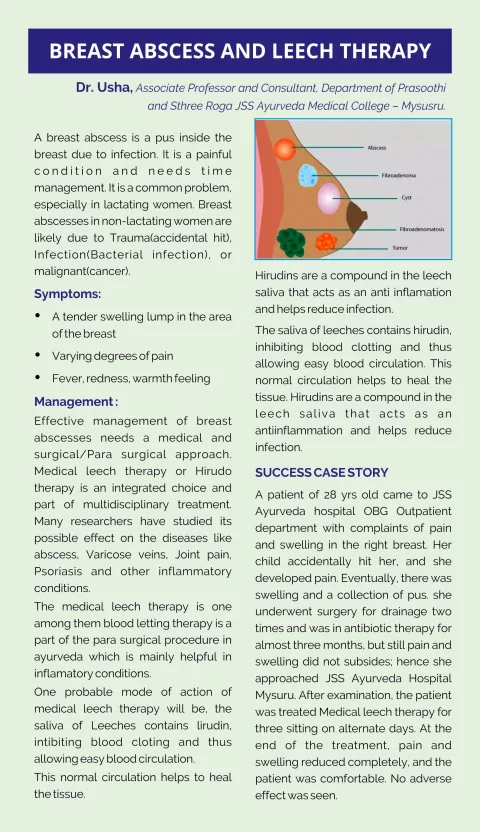Multiple sclerosis (MS) is a complex and often misunderstood autoimmune disorder that affects the central nervous system. In MS, the immune system mistakenly attacks the myelin, which is the protective sheath surrounding nerve fibers, leading to a disruption in communication between the brain and the body. This condition can manifest in various forms, causing a wide range of MS symptoms, such as fatigue, mobility issues, and cognitive changes. Understanding the causes of multiple sclerosis, including genetic factors and environmental influences, is crucial for effective management. In today’s world, living with MS requires not only medical intervention but also a comprehensive approach to maintaining quality of life and managing this chronic condition.
Often referred to as an autoimmune disease of the nervous system, multiple sclerosis (MS) presents unique challenges for those diagnosed. The disorder, which involves the degradation of myelin in nerve pathways, results in diverse neurological impairments that can impact everyday functioning. With varied types of MS, including relapsing forms and progressive variants, individuals may experience fluctuating severity of symptoms. Understanding the myriad factors contributing to MS—ranging from lifestyle choices to genetic predispositions—can help illuminate pathways for effective treatments. For those living with this condition, implementing strategies for managing MS symptoms and fostering a supportive environment is essential for enhancing well-being.
Understanding Multiple Sclerosis Symptoms
Multiple sclerosis (MS) presents a diverse array of symptoms that can differ greatly from person to person. The most common symptoms include numbness or tingling sensations, which can often indicate nerve damage. This often begins in a single limb, heightening the sensation of weakness that many individuals experience. Additionally, vision problems can occur, notably optic neuritis, where inflammation impacts the vision in one eye temporarily. Beyond physical symptoms, MS can also invoke cognitive challenges, impacting memory, concentration, and judgment.
Aside from the more widely recognized symptoms, MS can manifest in less obvious ways, like mood changes, leading to feelings of anxiety or depression. This emotional turmoil is often overlooked but is a significant aspect of living with MS. Fatigue, another prevalent symptom, can be debilitating and affect daily function. Understanding the wide-ranging symptoms not only aids in better management of the condition but can also empower those affected to seek help and support when needed.
The Causes of Multiple Sclerosis: What We Know
The causes of multiple sclerosis remain largely unknown, but several risk factors have been identified that might contribute to its onset. Genetic predisposition plays a crucial role; individuals with a family history of MS have a higher likelihood of developing the condition themselves. Environmental factors also significantly influence MS risk, including geographical location and vitamin D deficiency. Interestingly, certain viral infections, particularly the Epstein-Barr virus, have been correlated with a heightened risk of MS, indicating possible infectious triggers behind the disease.
Obesity and lifestyle factors, such as smoking, have also been linked to an increased risk of developing MS and can exacerbate its progression. Understanding these causes, while complex, highlights the importance of lifestyle choices and genetic factors in managing and preventing the onset of MS symptoms. Ongoing research is critical to uncovering the precise mechanisms behind multiple sclerosis, paving the way for more effective treatments and preventive strategies.
Exploring the Types of Multiple Sclerosis
Multiple sclerosis is categorized into several types, each with distinct characteristics and progression patterns. The most prevalent type is Relapsing-Remitting MS (RRMS), where patients endure episodes of exacerbated symptoms followed by recovery periods. This cycling can vary widely in severity and duration, demanding tailored management approaches to address the fluctuations in symptom severity.
Another form, Secondary-Progressive MS (SPMS), follows RRMS and signifies a gradual progression of symptoms without the clear bouts of relapse and remission seen in its initial stage. There’s also Primary-Progressive MS (PPMS), which is characterized by a gradual worsening from onset without relapses, presenting unique challenges for treatment. Understanding these types is essential for proper diagnosis and management, as each type can uniquely impact the patient’s quality of life and necessitate different therapeutic strategies.
Managing Multiple Sclerosis for Better Outcomes
Management of multiple sclerosis focuses on alleviating symptoms and slowing disease progression, as there is currently no cure. Disease-modifying therapies (DMTs) are a primary approach to reducing the frequency and severity of relapses. These treatments harness the body’s immune response mechanisms, aiming to lessen the inflammatory processes that exacerbate MS symptoms.
In addition to DMTs, corticosteroids are often prescribed to address acute flare-ups, providing rapid relief from inflammation. Rehabilitation therapies, including physical and occupational therapy, play an essential role in helping individuals adapt to changes in mobility and daily functions. Emotional and psychological support is also crucial, as mental health can significantly impact physical health. By understanding and utilizing these management strategies, individuals living with MS can improve their day-to-day quality of life.
Living with Multiple Sclerosis: Strategies for Coping
Living with multiple sclerosis can present numerous challenges, but establishing a strong support system is paramount. Connecting with healthcare providers, engaging in support groups, and educating oneself about MS can empower individuals to navigate the complexities of the disease effectively. Support networks not only assist with practical advice but also provide emotional reassurance, which is critical for mental health.
Moreover, adhering to treatment regimens and engaging in lifestyle modifications can significantly impact health outcomes. Incorporating exercise, maintaining a balanced diet, and prioritizing mental health care are essential components of living well with MS. With the right strategies and resources, individuals can enhance their resilience and overall wellbeing.
Recognizing Symptoms of Multiple Sclerosis Early
Early recognition of MS symptoms is crucial as it allows for timely diagnosis and intervention. Symptoms like numbness, weakness, and vision changes are often the first indicators. Many individuals may dismiss these as temporary issues, which can delay critical treatment. Awareness of these signs is necessary not just for individuals, but also for family and friends who may notice changes in behavior or physical abilities.
Furthermore, understanding the diverse spectrum of MS symptoms can facilitate more proactive healthcare decisions. When individuals are informed and attuned to what to look for, they can approach healthcare professionals with more clarity and confidence, thus leading to more effective management plans. Early diagnosis coupled with appropriate management significantly improves long-term outcomes for those diagnosed with multiple sclerosis.
Understanding the Complications of Multiple Sclerosis
Complications arising from multiple sclerosis can be extensive and vary greatly from person to person. As the disease progresses, many individuals may experience severe fatigue, difficulty with mobility, and cognitive decline. These complications can further complicate daily tasks and diminish the quality of life. Therefore, understanding these potential issues is essential for both patients and caregivers to prepare and adapt.
In addition, psychosocial complications like depression can emerge, significantly impacting emotional health. Awareness and management strategies surrounding these complications—including the importance of mental health support—are crucial for holistic treatment. Engaging with healthcare providers about potential complications can foster a comprehensive treatment plan that addresses both physical and mental health aspects of living with MS.
Investigating the Role of Lifestyle in Multiple Sclerosis Management
Lifestyle choices profoundly affect the management of multiple sclerosis. Regular physical activity has been shown to enhance strength and reduce fatigue, making it a critical component of effective management. Tailoring exercise programs to individual capabilities can help to boost confidence and promote mobility. Dietary choices also play a significant role; a balanced diet rich in vitamins and nutrients can support overall health and potentially impact disease progression.
Additionally, adopting stress management techniques, such as mindfulness and relaxation exercises, can be beneficial in coping with the emotional challenges posed by MS. Cognitive behavioral therapy and community support can aid in managing the psychological impact of the disease. By integrating healthy lifestyle practices into daily routines, individuals living with MS can achieve a better quality of life while managing their symptoms.
Navigating the Diagnosis Process for Multiple Sclerosis
The diagnosis of multiple sclerosis is often a complex and lengthy process. It typically involves a combination of medical history, neurological examination, and advanced diagnostics such as MRI scans. Notably, advanced imaging can reveal lesions in the central nervous system that are indicative of MS, assisting healthcare providers in making a well-informed diagnosis.
Additionally, analyzing cerebrospinal fluid can uncover inflammatory markers pertinent to MS. This comprehensive approach ensures that other potential conditions are ruled out, leading to an accurate diagnosis. Understanding the steps involved in diagnosis can alleviate some of the stress associated with uncertainty and empower patients as they seek appropriate treatment pathways.
Frequently Asked Questions
What are the common MS symptoms and how do they affect daily life?
Multiple sclerosis (MS) symptoms can significantly vary among individuals. Common MS symptoms include numbness, weakness in limbs, vision problems, difficulty walking, fatigue, and cognitive changes. These symptoms can impact daily life, making tasks challenging and affecting overall quality of life.
What are the main causes of multiple sclerosis?
The exact causes of multiple sclerosis (MS) remain uncertain, but potential contributing factors include genetic predisposition, environmental influences such as vitamin D deficiency, and viral infections like the Epstein-Barr virus. Obesity and smoking have also been linked to a higher risk of developing MS.
What types of multiple sclerosis are there and how do they differ?
There are several types of multiple sclerosis (MS), including Relapsing-Remitting MS (RRMS), characterized by episodes of new symptoms followed by recovery, and Secondary-Progressive MS (SPMS), which worsens progressively after RRMS. Primary-Progressive MS (PPMS) involves continuous worsening from the start, while Clinically Isolated Syndrome (CIS) refers to a first instance of symptoms that may or may not lead to MS.
How can one effectively manage MS symptoms?
Managing MS symptoms involves a multi-faceted approach including disease-modifying therapies (DMTs) to reduce relapse frequency, corticosteroids for acute flare-ups, and rehabilitation therapies. Support systems, lifestyle modifications, and mental health support also play crucial roles in enhancing quality of life for individuals living with MS.
What strategies can help in living with MS?
Living with multiple sclerosis (MS) requires a proactive approach including building a strong support network, staying informed about the condition, adhering to treatment plans, and engaging in healthy lifestyle choices. Joining support groups can also provide valuable coping strategies and emotional support.
| Key Points | Details |
|---|---|
| Overview | Multiple sclerosis (MS) is a chronic autoimmune disease affecting the nervous system. |
| Symptoms | Common symptoms include numbness, weakness, loss of vision, fatigue, and cognitive changes. |
| Types of MS | – Relapsing-Remitting MS (RRMS) – Secondary-Progressive MS (SPMS) – Primary-Progressive MS (PPMS) – Clinically Isolated Syndrome (CIS) |
| Causes | Unknown causes, but factors like genetics, environment, obesity, and infections may contribute. |
| Diagnosis | Includes medical history review, neurological exams, MRI scans, and cerebrospinal fluid analysis. |
| Complications | Fatigue, mobility issues, cognitive decline, and psychosocial problems can arise. |
| Management | Focus on symptom management and progression through DMTs, corticosteroids, and rehabilitation. |
| Living with MS | Establishing support systems, staying informed, and treatment compliance is essential. |
Summary
Multiple sclerosis is a complex and challenging condition that affects many aspects of life. Understanding the symptoms, types, causes, and management options is essential for individuals diagnosed with this autoimmune disease. While there is currently no cure, effective management strategies exist to improve quality of life and cope with the challenges of MS. By establishing strong support systems and adhering to treatment regimens, individuals with multiple sclerosis can maintain their health and well-being.
The content provided on this blog (e.g., symptom descriptions, health tips, or general advice) is for informational purposes only and is not a substitute for professional medical advice, diagnosis, or treatment. Always seek the guidance of your physician or other qualified healthcare provider with any questions you may have regarding a medical condition. Never disregard professional medical advice or delay seeking it because of something you have read on this website. If you believe you may have a medical emergency, call your doctor or emergency services immediately. Reliance on any information provided by this blog is solely at your own risk.






